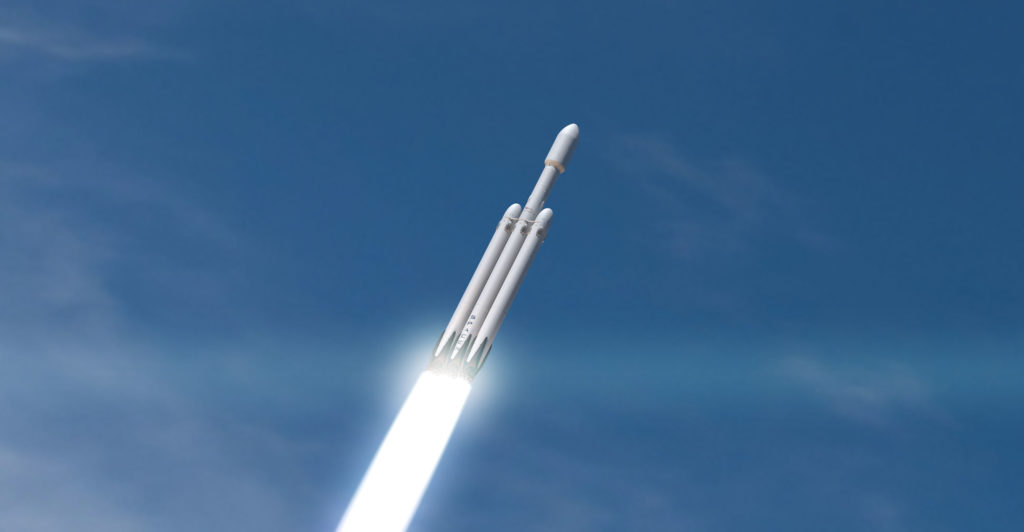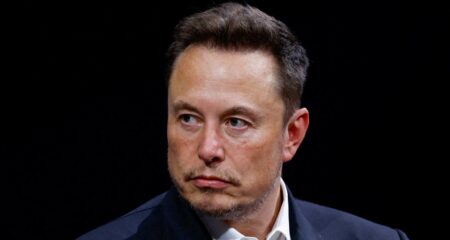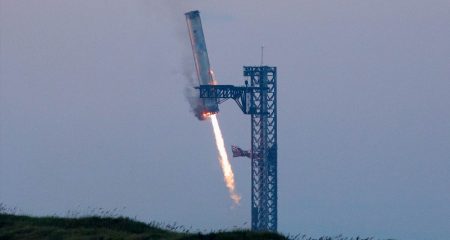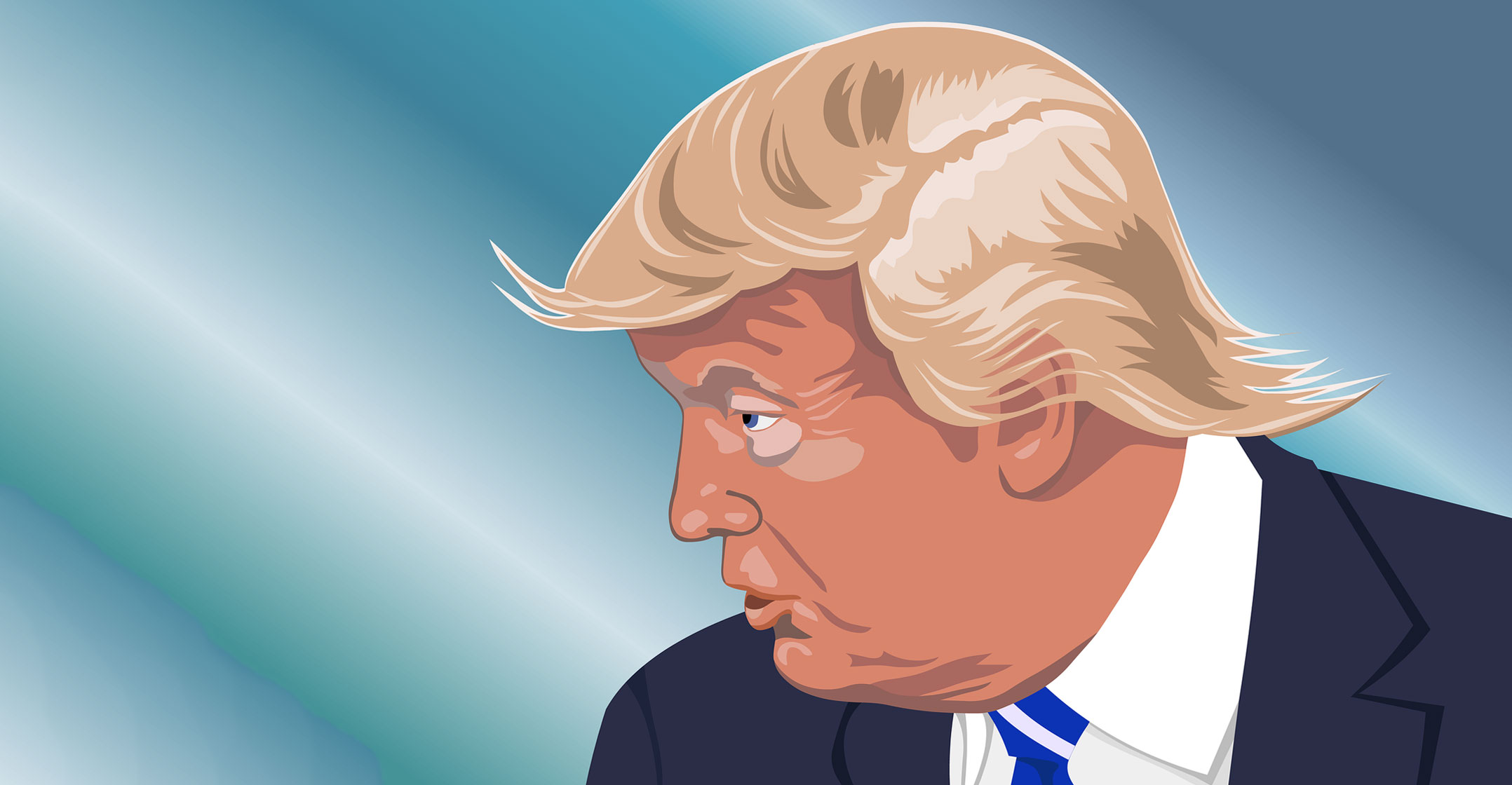 “When Elon Musk came to the White House asking me for help on all of his many subsidised projects, whether it’s electric cars that don’t drive long enough, driverless cars that crash, or rocketships to nowhere, without which subsidies he’d be worthless, and telling me how he was a big Trump fan and Republican, I could have said, ‘Drop to your knees and beg,’ and he would have done it…” — Donald Trump on Truth Social, 12 July 2022.
“When Elon Musk came to the White House asking me for help on all of his many subsidised projects, whether it’s electric cars that don’t drive long enough, driverless cars that crash, or rocketships to nowhere, without which subsidies he’d be worthless, and telling me how he was a big Trump fan and Republican, I could have said, ‘Drop to your knees and beg,’ and he would have done it…” — Donald Trump on Truth Social, 12 July 2022.
Elon Musk took to Twitter on Sunday night, posting a cartoon of a woman eyeing a bottle of prescription drugs. He labelled the woman “Donald Trump” and the bottle “his reinstated twitter account”. In other words, Trump needs Twitter like some people need their drugs, and it won’t be long before Trump is active on the platform. (Musk later replaced that cartoon with a more suggestive one depicting a beguiling woman on her knees, her dress hiked up around her hips. A priest stands nearby, trying to resist the temptation of sex. Musk tagged the woman’s bare backside with the Twitter logo and labelled the priest “Trump”.)
The converse is also true, of course: Musk needs Trump like some carnival barkers need an act in the centre ring of their circus. And Musk needs it so much that he doesn’t care how violent that act might get.
The last time Trump posted something to Twitter was on 8 January 2021 — two days after a violent mob that he inspired laid siege to the US Capitol. “To all of those who have asked, I will not be going to the Inauguration on January 20th,” he advised.
An earlier tweet that same day also got him in trouble with Twitter: “The 75,000,000 great American Patriots who voted for me, AMERICA FIRST, and MAKE AMERICA GREAT AGAIN, will have a GIANT VOICE long into the future. They will not be disrespected or treated unfairly in any way, shape or form!!!”
Trump had been inciting violence for years before that — at his rallies, in his speeches and on social media — and the 6 January insurrection made the consequences of his flame-throwing tangible. Twitter took all of that into account as it examined Trump’s courtship of the “American Patriots” who stormed the Capitol.
Serial blowhard
Twitter ultimately concluded that Trump’s boycott of the inauguration demonstrated little interest in a peaceful transfer of power. Instead, Trump’s tweets, Twitter said, were “likely to inspire others to replicate the violent acts that took place on 6 January 2021, and that there are multiple indicators that they are being received and understood as encouragement to do so.” So Twitter kicked Trump off the site. A board of outside advisers to Facebook reached the same conclusion early last year when it upheld a similar Trump ban on its platform.
On Saturday, Musk — one part car guy, one part rocket guy, one part serial blowhard and no part media guy — chose a different path: he decided to bring the former president back into the fold. Twitter’s new owner said a highly unscientific online poll he conducted on Twitter had suggested that his platform’s users wanted Trump back. “The people have spoken,” Musk tweeted. “Trump will be reinstated. Vox Populi, Vox Dei.” A more honest tweet from Musk might have read: “My Twitter followers and tens of thousands of bots have spoken. Vox Elon, Vox Dei. It’s a useful diversion to say otherwise. The choice was mine.”
Musk reinstated Trump because featuring Twitter’s most recognisable global power user matters desperately to a business he has been bungling since the moment he took it over.
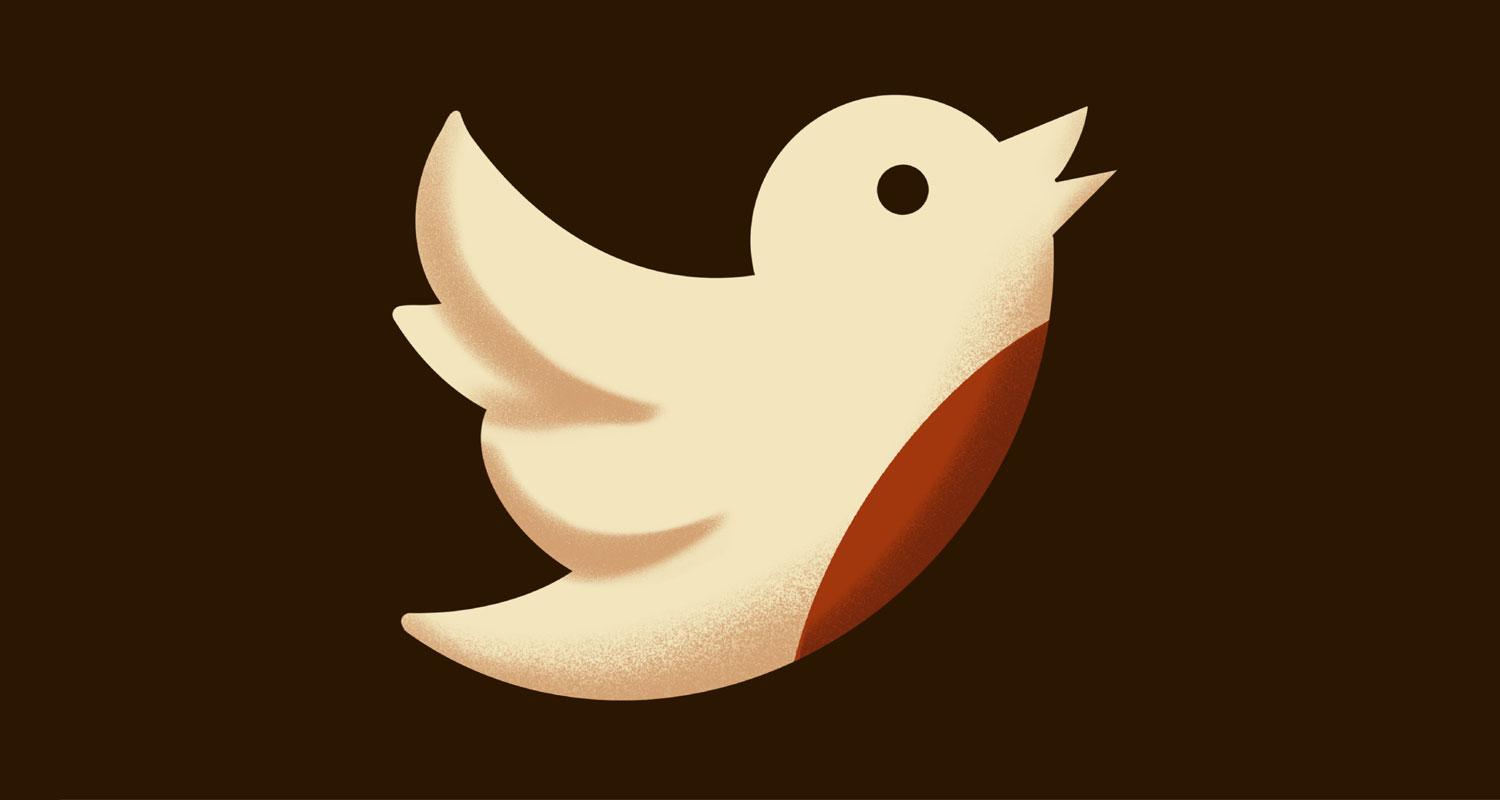 Trump is struggling, too. His recent political fortunes, including watching myriad candidates he endorsed take a beating in the midterms, make a return to Twitter attractive and, despite his declarations to do otherwise, probably inevitable. The timing of the reinstatement is perfect — it certainly wasn’t coincidental — and it means two world-class juvenile delinquents will coexist in the same digital frat house.
Trump is struggling, too. His recent political fortunes, including watching myriad candidates he endorsed take a beating in the midterms, make a return to Twitter attractive and, despite his declarations to do otherwise, probably inevitable. The timing of the reinstatement is perfect — it certainly wasn’t coincidental — and it means two world-class juvenile delinquents will coexist in the same digital frat house.
Musk’s repeated claims that he is a “free speech absolutist” and that he took over Twitter and is reinstating Trump in the service of those values is also pure hokum. It’s all about power-tripping and making some coin, however misguided that latter notion might be. As my colleague Parmy Olson points out, “Musk seems to have forgotten about the age-old mirage that disappoints many social media influencers, that online popularity doesn’t necessarily make money”.
Musk has routinely tried to suppress the speech of his critics, but even if he was an authentic free speech absolutist and responsible publisher, he would have ample justification for keeping Trump off Twitter.
Free speech isn’t an absolute right in the US, and the first amendment of the constitution guards against the government infringing on speech; private enterprises can do as much infringing as they see fit. The law protects vigorous reporting and intense scrutiny of public figures while limiting, for example, protection for certain obscenities and for language that incites violence or encourages overthrowing the government.
It’s unlikely that any of that matters to Musk. If it did, he wouldn’t have turned Trump’s return to Twitter into a game
No public figure in the US in the modern era has incited violence with the same gusto and disastrous, dangerous results as Trump. Free speech is a contingent right, and Trump’s repeated efforts to persuade his gladiators to take to the battlefield isn’t more important than democracy or public safety. And Trump, surrounded by lawyers who claim his presidency put him above the rule of law, is still being investigated as part of continuing state and federal investigations into his actions before, during and after 6 January 2021.
It’s unlikely that any of that matters to Musk. If it did, he wouldn’t have turned Trump’s return to Twitter into a game. Like most technologists, he prefers to see Twitter as a digital connective tissue where everything should blossom freely and very little should be restricted. The responsibilities of being a thoughtful and sophisticated gatekeeper don’t interest him. Even when he waxes nostalgic and labels Twitter as a “de facto public town square”, he’s deluding himself. Few town squares want thugs roaming around them, calling for violence. — Timothy L O’Brien, (c) 2022 Bloomberg LP


